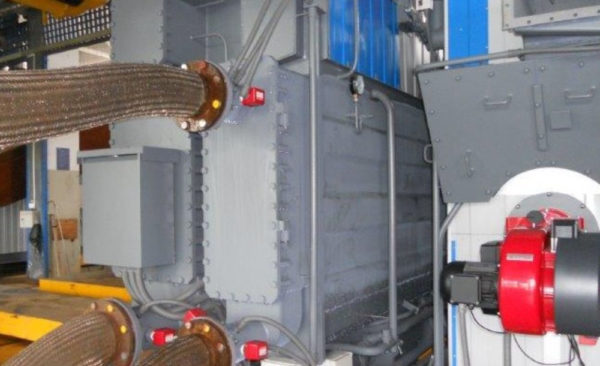Project Description
PROJECTS
CHP/CCHP
Co-Gen Systems At Hotel Resorts

Beach Resort & Spa
A Beach Resort & Spa in Jamaica set a goal to achieve environmentally friendly tourism and to reduce energy costs. Warner Levy EnviroEnergy performed an energy analysis to determine the electrical loads, thermal loads, cooling loads at the facility. We identified that production of chilled water for air conditioning was the highest consumer of electricity at the facility, while the greatest heat sink at the facility was domestic hot water for use in the hotel rooms.
Based on our energy analysis, WLEE investigated two Co-Generation alternatives to reduce energy costs at the facility.
- Produce 200 kW of electricity using a propane fired microturbine, and use the microturbine exhaust as a heat source to produce domestic hot water to replace four existing Lochinvar Turbocharger water heaters
- Produce 200 kW of electricity using a propane fired microturbine and utilize microturnine exhaust as a heat source in a 300 TR exhaust and propane fired absorption chiller to replace one existing 325 TR Trane RTHD electric chiller
Based on our recommendation, the resort decided to implement the absorption chiller option. Warner Levy EnviroEnergy prepared detailed engineering drawings, a detailed cost estimate, and a bill of materials for the design of propane fired microturbine and utilize microturnine exhaust as a heat source in a 300 TR exhaust and propane fired absorption chiller to replace one existing 325 TR Trane RTHD electric chiller. this design.
This project is expected to reduce the electricity demand of the facility by approximately 2.5 million kWh/year, while producing 1.5 million kWh /year of electricity on site by using 9.2 million kWh / year of propane.
A typical power plant can produce and distribute power with 25% efficiency (65% losses in conversion from thermal to electric energy and 10% distribution losses) compared to the amount of thermal energy present in the fuel. Therefore, buying the same 4.0 million kWh/year of electricity from the grid would have required 16 million kWh / year of fuel upstream. This project represents 6.8 million kWh/year in savings of fuel thermal energy.
A Beach & Golf Resort
Warner Levy EnviroEnergy investigated opportunities to achieve our client’s goals of environmentally friendly tourism and reduced electricity costs for its operations at a Beach & Golf Resort in Jamaica.
We performed an energy analysis to determine the electrical loads, thermal loads, cooling loads at the facility. We found that the greatest electricity consumption at the site was for the existing 200 TR Carrier chillers.
Based on our investigation, we proposed a Combined Cooling, Heat and Power (CCHP) design to produce electricity and chilled water on site. The design involved the use of a 200 kW propane fired microturbine as a heat source, integrated with a 200 TR exhaust and propane fired absorption chiller as a heat sink. This design is expected to reduce electricity demand from the local utility by 326 kW.
Hotel, Resort & Spa
Warner Levy EnviroEnergy investigated opportunities to achieve our client’s goals of environmentally friendly tourism and reduced electricity costs for its operations at the Beach Resort & Spa in Jamaica.
WLEE performed an energy analysis to determine the electrical loads, thermal loads, cooling loads at the facility. We found that the facility did not have centralized air conditioning; instead each hotel room has its own separate cooling unit. In addition, the energy efficiency of producing domestic hot water could not be increased any further.
In light of our investigation, Warner Levy EnviroEnergy decided that the best way to reduce energy costs and increase energy efficiency at the facility would be to produce electricity on site using three propane fired 200 kW microturbines. On site generation of electricity will eliminate the distribution loss (typically 10%) inherent in purchasing electricity from the grid.
